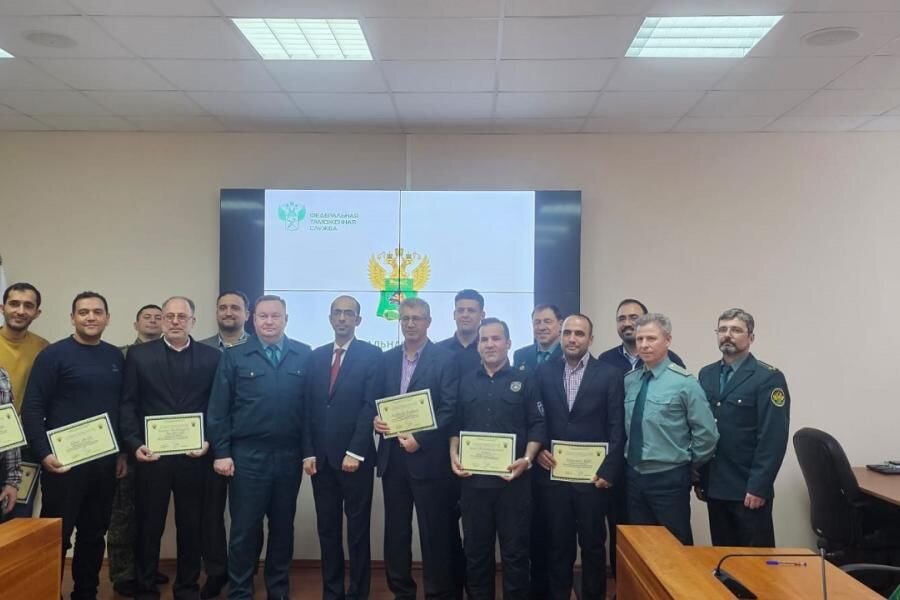UNODC holds training course for anti-narcotics officers, experts

TEHRAN – The United Nations Office on Drugs and Crime (UNODC) in Iran held a five-day specialized training course for experts and officers from the Drug Control Headquarters, Anti-Narcotics Police, and Customs Administration of the Islamic Republic of Iran in Moscow, Russia, from January 22 to 26.
The course titled “Searching Method of Illicit Drugs with Use of Trained Dogs”, was organized with the cooperation of the Central Customs Canine Training Centre of the Federal Customs Service of the Russian Federation, which is a World Customs Organization (WCO) Regional Dog Training Centre, in Moscow Region.
The UNODC Iran has been actively present in the Islamic Republic of Iran since 1999 and considers Iran as one of the strategic partners for drug control and crime prevention in the region and has been supporting the Islamic Republic of Iran by providing technical assistance and training for years ever since its establishment, the UN website announced in a press release on February 6.
UNODC Iran also has a history of cooperation with the governments of the Russian Federation, as a major donor of its activities, and this training was among a series of trainings held in the Russian Federation and in the Islamic Republic of Iran, with the support of Russian experts and senior instructors, the report added.
The comprehensive curriculum of this training encompassed theoretical topics and lessons on various topics regarding drug-detecting dogs.
In addition to various lectures and specialized seminars and classes envisaged under the curriculum of this training, practical visits, trainings, and demonstrations were foreseen for the members of the delegation, which significantly enriched the courses, and complemented the theoretical section.
The delegation also visited different sections of the center including the veterinary ward.
On the third day of the event, a visit to Sheremetyevo airport was arranged in which various restricted access sections of the airport, including passenger areas, Customs check, luggage transfer, and canine unit stationed at this airport were shown to the participants.
On the fourth day of the event there was a round table headed by Mr. Cherkavsky, head of the Central Customs Canine Training Centre of the Federal Customs Service of the Russian Federation, in which the Iranian delegation had presentations and shared their knowledge, also asked their questions regarding structure, staffing, equipment and other technical aspects of management of the center.
In a message, the UNODC Iran Country Representative, Alexander Fedulov, hoped that this specialized training which was among a series of activities organized under generous funding of the Russian Federation, would be beneficial to participants and highlighted the importance of global cooperation to fight the menace of drugs.
In his message, Fedulov reiterated the importance of global support for drug control activities in the Islamic Republic of Iran, considering the geographical location of Iran, bordering Afghanistan as the main producer of Opium and Methamphetamine.
At the graduation ceremony, certificates were handed over to the participants from the Islamic Republic of Iran by the head of the Central Customs Canine Training Centre of the Federal Customs Service of the Russian Federation.
In this event, he expressed his willingness to continue cooperation with UNODC and the government of the Islamic Republic of Iran in the future for further cooperation and knowledge sharing.
Study-visit workshop in Tashkent
Anti-narcotics police and law enforcement experts and officers from the Drug Control Headquarters participated in a three-day study visit organized by the United Nations Office on Drugs and Crime (UNODC) office in Iran from December 4-6, 2023, in Tashkent – Uzbekistan.
The study visit encompassed various activities and topics, inter alia session on “Construction and structure of an optimal canine center, management of an optimal canine center; staffing of an optimal canine center; breeding, health, treatment, food, etc. for drug-detecting dogs”, the report added.
The attendees learned about the specific ways of training and dealing with working dogs. They also acquired needed practical knowledge for managing kennels.
According to the report, the members of the Iranian delegation visited the veterinary ward and had the opportunity to directly ask their questions from the specialized medical staff.
The head of the medical center provided the delegation with pertinent information and answered questions regarding structure, staffing, equipment, and other technical aspects of the management of the veterinary ward.
At the end of the training and pursuant to the official ceremony at the Regional Customs Canine Centre of Uzbekistan, memorial trees were planted to symbolize enduring fellowship among partners in Iran and Uzbekistan and continuous cooperation in the future.
Highlighting the importance of international cooperation in the fight against narcotics, Alexander Fedulov, the UNODC representative in Tehran, hoped that future activities of a similar nature would continue upon the provision of support by donors.
Iran is committed to fight against narcotics
On February 5, Iranian anti-narcotics police reported the seizure of more than 500 tons of different types of narcotics in the first ten months of the current Iranian calendar year that started in March 2023.
Iran has spent a huge sum of money fighting the war on drugs, and apart from that, many anti-narcotics forces have sacrificed their lives in this way.
“The Islamic Republic of Iran has always been committed to a serious and decisive fight against narcotics at the regional and global level,” IRIB quoted Fedulov as saying in October 2023.
"Considering the fact that the Islamic Republic of Iran is at the forefront of the fight against drug trafficking, the UNODC and the international community support of Iran should be proportionate to the activities and actions at the regional and global level,” the UN official added.
MT/MG
Leave a Comment